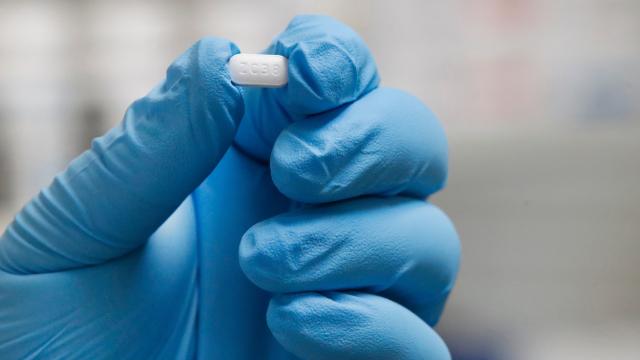The end of the road for a potential covid-19 treatment once heralded as a “game changer” by President Trump seems to have arrived. On Monday, the Food and Drug Administration revoked its emergency use authorization of the related drugs hydroxychloroquine and chloroquine for covid-19, after a review of the evidence led the agency to conclude that both drugs would likely be ineffective against the viral disease.
In late March, the FDA granted emergency use authorization for hydroxychloroquine and chloroquine at the request of the Biomedical Advanced Research and Development Authority (BARDA), a fellow agency under the umbrella of Health and Human Services. The authorization allowed doctors temporary leeway to prescribe both drugs for covid-19 patients, despite not being formally approved for that use. BARDA also donated supplies of both drugs from the government’s Strategic National Stockpile to be used as needed.
Similar approvals were made by countries across the world after early studies in France and China suggested that these drugs could affect the coronavirus’s ability to replicate and improve patient outcomes. In the months since, however, the saga of hydroxychloroquine and chloroquine has taken more than a few twists and turns.
Some doctors were quick to credit hydroxychloroquine with near-miraculous results in treating covid-19 soon after these initial reports, and President Trump touted the drugs’ potential in his daily coronavirus press briefings. A week before the FDA’s emergency use authorization, Trump notably said he was taking hydroxychloroquine as a prophylactic against covid-19 infection.
But many other doctors were more cautious, pointing out that these early reports of success often weren’t independently verified and that more data was needed, particularly data from large, randomised, and controlled clinical trials.
These large-scale trials take a long time to conduct, and in the meantime, the evidence for or against hydroxychloroquine and chloroquine from other types of studies was decidedly mixed or marred with controversy. Infamously, a paper published in the Lancet in late May concluded that the drugs (either taken alone or in combination with an antibiotic) provided no benefit to hospitalized patients with severe covid-19 and may have even increased their risk of dying. But soon after, other scientists criticised the data underlying these results, arguing that it appeared fabricated; eventually, most of the co-authors retracted their study, saying that they couldn’t stand behind the data.
[referenced url=”https://gizmodo.com.au/2020/06/latest-coronavirus-science-new-yorks-hopeful-road-to-recovery/” thumb=”https://gizmodo.com.au/wp-content/uploads/2020/06/06/kkaqwwyqc2rzbamwd635-300×168.jpg” title=”Latest Coronavirus Science: New York’s Hopeful Road to Recovery” excerpt=”Here are some of the latest scientific developments around covid-19, including insights about the first major outbreak in Wuhan, China, a raft of hydroxychloroquine treatment trials, and steady progress in some but not all areas of the U.S.”]
A week ago, however, the UK government released preliminary results from its large trial of hydroxychloroquine, which still found no benefit for patients with severe covid-19. Another clinical trial found no evidence that taking hydroxychloroquine as a prophylactic prevented covid-19 infection.
According to a letter published by the FDA on Monday, BARDA asked the FDA to revoke the emergency use authorization for both drugs, citing the new evidence collected since its original request in March. Following its own review, the FDA agreed, appearing to reference the UK study as one reason why.
“FDA has concluded that, based on this new information and other information discussed in the attached memorandum, it is no longer reasonable to believe that oral formulations of [hydroxychloroquine and chloroquine] may be effective in treating COVID-19, nor is it reasonable to believe that the known and potential benefits of these products outweigh their known and potential risks,” the letter, written by FDA chief scientist Denise Hinton, stated.
The public about-face from BARDA is especially noteworthy. In April, its recently reassigned, now former director Rick Bright alleged that he was punished and demoted by the Trump administration for urging caution in promoting the drugs.
The loss of an emergency use authorization doesn’t mean that doctors are no longer able to provide these drugs to covid-19 patients, since any drug can be given off-label at that doctor’s discretion. But coupled with a warning issued by the agency that these drugs shouldn’t be used for covid-19 outside of a clinical trial setting, it’s likely a final nail in the coffin for the possibility that they’ll be widely used to treat patients, at least in the U.S.
There are still large trials of hydroxychloroquine and chloroquine ongoing, including one being run by the World Health Organisation. So there is the chance, however slim, that these drugs will end up being useful in the fight against covid-19. But it’s more probable that they’ll be added to the pile of potential treatments that never panned out.
